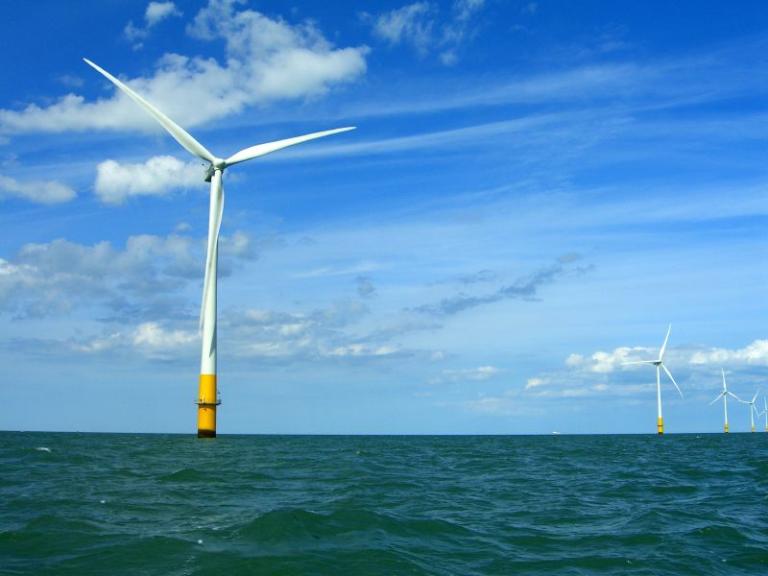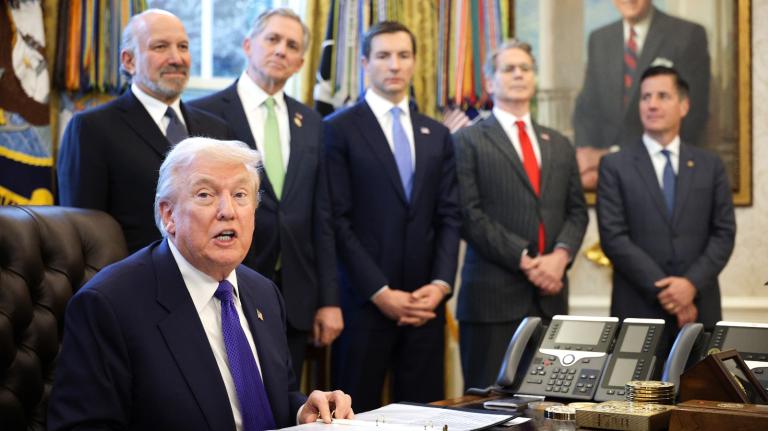Breaking: Cuccinelli and Dominion Move to Repeal Virginia’s Clean Electricity Standard
Proposed legislation would harm environment and, opponents say, constitutes a confession that Dominion has accepted $77 million from ratepayers without properly fulfilling intent of current law
RICHMOND—Dominion Virginia Power has informed environmental groups that the company has reached a tentative agreement with Virginia Attorney General Ken Cuccinelli to support legislation that would effectively repeal the state’s signature clean energy law. The move, environmentalists said, would not only harm the environment but also represents a de facto admission of guilt by Dominion. The company has already accepted $77 million from ratepayers without making the clean energy investments that the General Assembly first intended with its original 2007 law.
Cuccinelli, a nationally known global warming denier who has sued the US EPA and the University of Virginia in the past to advance a radical anti-environmental agenda, has been critical of the state’s “Renewable Portfolio Standard (RPS)” law for some time. Dominion, meanwhile, has been publicly criticized for months by environmental and health leaders in the state for exploiting loopholes in the RPS energy law to gain millions of dollars in incentive payments from customers without developing a single wind farm or large solar project in the state.
Rather than work with lawmakers and advocates to strengthen the renewable energy standard and close controversial loopholes, Dominion has formed an alliance with Cuccinelli to render the law useless through a de facto repeal. As detailed to environmental advocates, Dominion and Cuccinelli are moving to repeal the performance incentive that serves as the law’s only mechanism for holding utilities accountable to fulfilling their clean energy goals. The Dominion-Cuccinelli proposal is a radical move that clean energy advocates statewide described as out of step with mainstream voters, a claim supported by recent polling.
“This is a sad, sad day for the state of Virginia,” said Dawone Robinson, Virginia Policy Coordinator, for the Chesapeake Climate Action Network. “Citizens should tell Dominion and Cuccinelli to close the loopholes in the current clean energy law, not cynically repeal it completely.”
Hundreds of activists picketed Dominion’s downtown Richmond office for a week in October demanding that the company instead follow the proper intent of the law and earn its clean-energy incentives by investing in wind and solar power. Senator A. Donald McEachin and Delegate Alfonso Lopez are introducing common-sense legislation that would strengthen the RPS law by requiring Dominion to invest in wind and solar power in Virginia in order to qualify for these financial incentives, thus fulfilling the intent of the law to spur a clean energy industry in the commonwealth. A September statewide poll of likely voters showed that 63 percent of Virginians back this approach.
“Kids with asthma, Hurricane Sandy victims, and tourists who want to see the Shenandoah Mountains instead of smog—they all want clean energy in this state,” said Robinson. “And as in dozens of other states, our current clean electricity law can succeed if it is firmly reformed and Dominion agrees to stop gaming the rules. We need to fix the RPS law, not repeal it.”
Critics point out that the Dominion-Cuccinelli alliance to repeal the clean energy law in Virginia is consistent with nationwide efforts by the controversial and archconservative American Legislative Exchange Council (ALEC). With funding from major oil and coal companies, ALEC has stated that it will prioritize efforts to repeal RPS laws in states from coast to coast in 2013 through its model “Electricity Freedom Act” legislation. The group is known for promoting a wide array of ultra-conservative policies, including the “stand your ground” gun law in Florida that police believe played a role in the death of an unarmed teenager in 2012.
Meanwhile, as climate scientists in Virginia and worldwide continue to document record heat, drought, sea-level rise, and storms linked to global warming and fossil fuel use, Dominion Power continues to declare its overwhelming commitment to combusting dirty energy to meet the state’s future energy needs. In its most recent 15-year plan, Dominion said it still expects to generate the majority of its power for utility customers by burning fossil fuels, like coal and gas, in 2027. The company stated an astonishingly small 3.9 percent as its expected generation from clean, renewable energy sources in that year.
Resources:
- Read FAQs on the RPS, how it should be strengthened, and what the Cuccinelli-Dominion plan would do.
- Read the December 2012 report, “RPS Report Card: How Virginia’s Renewable Portfolio Standard Rewards Utilities for a failing Performance—and how to fix it.”
- See the Virginia renewable energy polling data from September 2012.
- Ken Cuccinelli Receives $50,000 Koch Brothers Contribution.



